
Selling a home for cash is increasingly popular among homeowners looking for a fast and straightforward sale. Unlike traditional home sales, the cash home sale process eliminates many complexities, allowing sellers to bypass repairs, showings, and mortgage approvals. Below, we’ll take an in-depth look at how this process works, the benefits of choosing a cash sale, and what to expect at every stage.
1. Initial Inquiry and Property Assessment
The cash offer on house process begins with a straightforward inquiry. Homeowners typically start by filling out an online form or making a call to the cash-buying company. At this stage, you’ll provide basic information about the property, such as its location, size, and condition.
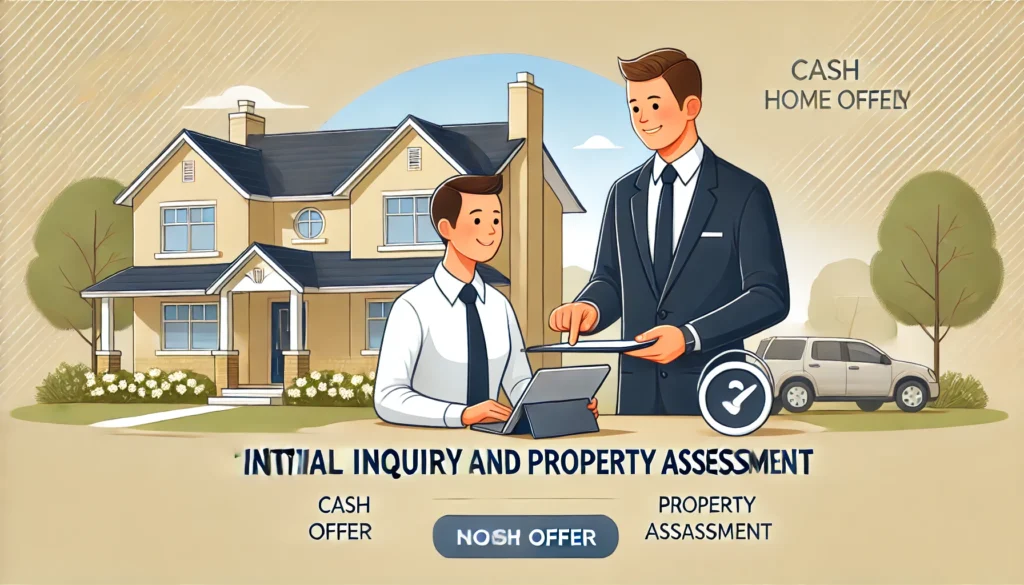
After receiving your initial information, the buying company will conduct a preliminary assessment. Some companies may request recent photos of the home, while others rely on digital property records. The main goal here is to determine if your property fits their buying criteria.
2. Scheduling an In-Person or Virtual Walkthrough
Once the initial assessment is complete, many buyers schedule a walkthrough to confirm the property’s condition. This walkthrough, which could be virtual or in-person, allows the buying team to evaluate the home and ensure it meets their standards. Unlike traditional sales, this inspection is typically informal and doesn’t require you to make any repairs or updates.

During the walkthrough, the buyer may note any factors affecting the offer, such as outdated appliances or cosmetic issues, though these usually don’t impact the offer significantly.
3. Receiving the Cash Offer
After the walkthrough, you’ll receive a formal cash offer for your home. Cash buyers aim to provide competitive offers based on the home’s market value, current condition, and location. The offer usually includes all essential details, such as the purchase price, closing date, and any necessary disclosures.

This stage is one of the most attractive parts of the cash home sale process for sellers. You receive an offer within days, and it’s a straightforward, “as-is” offer – meaning you won’t need to make repairs or prepare the home for the market.
4. Reviewing and Accepting the Offer
You’ll have time to review the cash offer and decide if it meets your expectations. Cash offers typically come with a set expiration date, so you’ll need to respond within that window if you wish to proceed. It’s also a good idea to ask questions or request clarification on any part of the contract before signing.

For many homeowners, this is a stress-free decision point compared to traditional sales, as the offer reflects a fair value without the hassle of ongoing negotiations or contingencies.
5. Setting the Closing Date
Once you accept the offer, the next step in the cash offer on house process is to agree on a closing date. One of the benefits of a cash sale is flexibility; most companies allow you to choose a date that works best for you. This is particularly advantageous if you need to relocate quickly or if timing is crucial for other financial reasons.
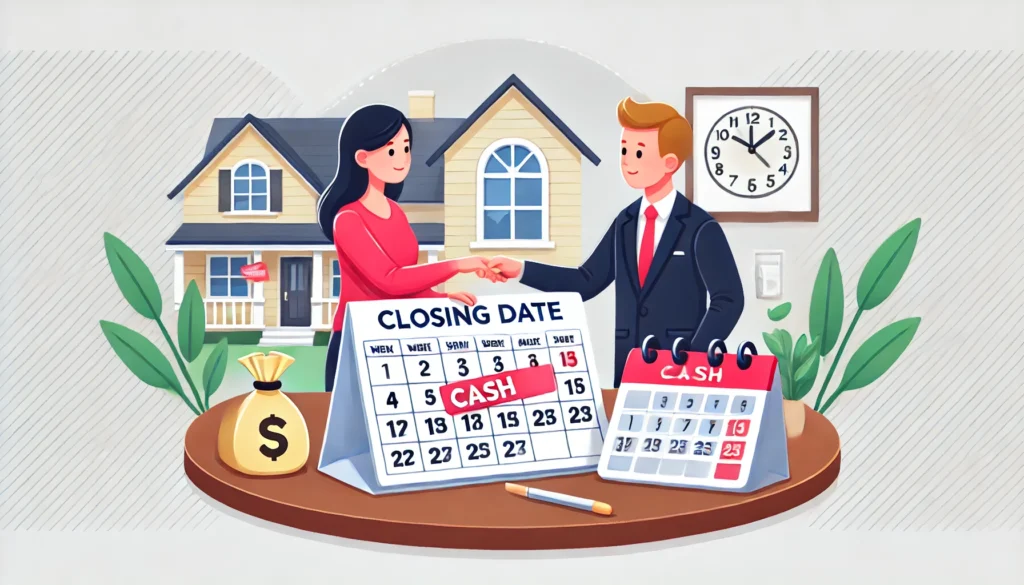
Closing can often happen within days or weeks, depending on your preference and the company’s process. Unlike traditional sales, there are no mortgage approvals or third-party delays, so you’re in control of the timeline.
6. Completing the Final Paperwork
As the closing date approaches, you’ll complete the final paperwork. Most companies have simplified this step, preparing all necessary documents in advance. The paperwork will include a bill of sale, disclosure forms, and any other required documents. Cash buyers often cover closing costs, so there’s no need to worry about additional fees reducing your final payout.
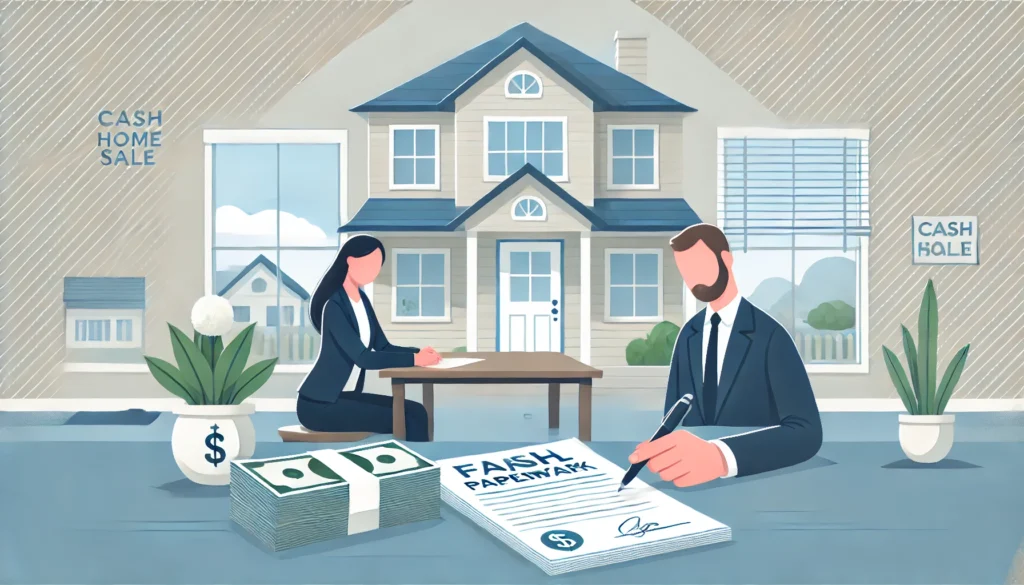
During the paperwork phase, a title company or attorney typically manages the transaction, ensuring that the property’s title is transferred smoothly and legally. This adds an extra layer of security and confirms that both parties are fully protected.
7. Receiving Your Cash Payment
On closing, you’ll sign the last documents and the funds will be released. Payments are typically made via a cashier’s check or a bank transfer, depending on your preference. This completes the cash home sale process, and you can move forward without further obligations.
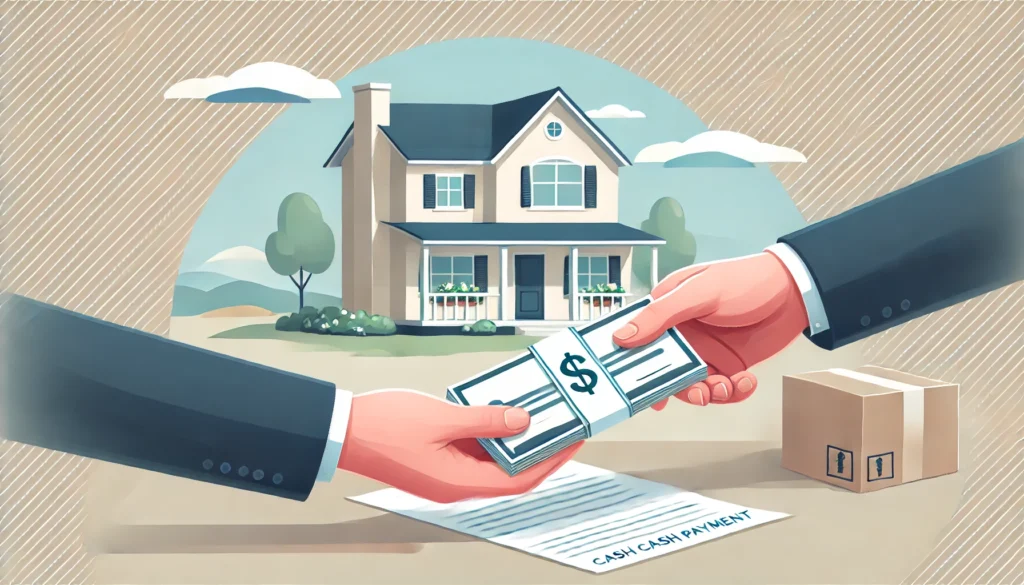
Benefits of Selling a House for Cash
The cash offer on house process offers several advantages that make it an attractive option for homeowners. Here are some of the primary benefits:




When to Consider a Cash Sale for Your Home
Not every homeowner needs a cash sale, but for certain situations, it can be a lifesaver. Cash sales are ideal if you’re:
- Facing financial difficulties or need quick access to funds
- Inheriting property you’d rather not manage
- Dealing with a time-sensitive relocation
- Wishing to avoid costly repairs or renovations
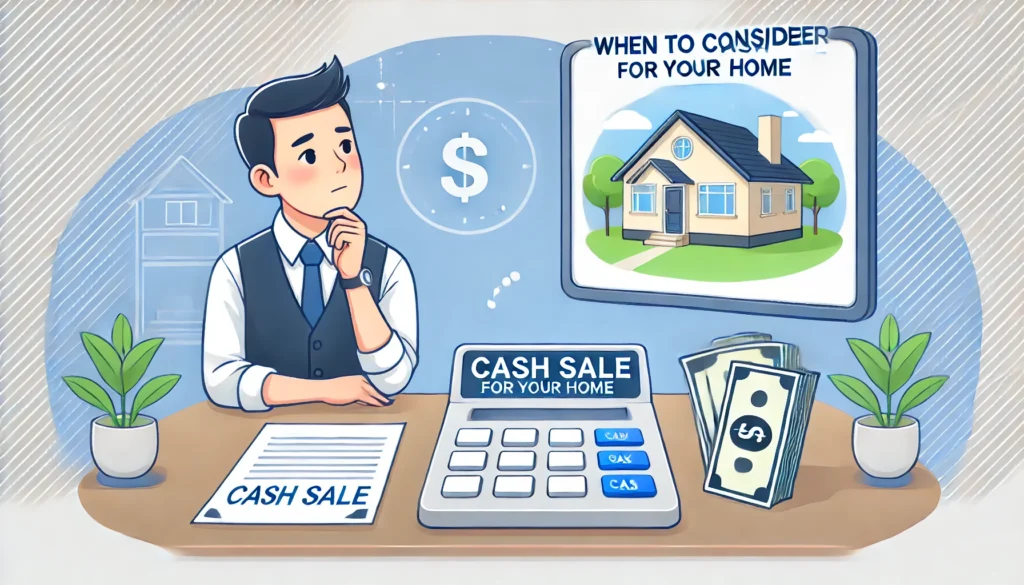
For anyone seeking an expedited and straightforward sale, the cash home sale process offers unmatched convenience.
Potential Considerations in a Cash Sale
While a cash sale has clear benefits, it’s essential to consider the offer carefully. Some homeowners may receive offers slightly below market value in exchange for the speed and convenience of a cash transaction. It’s worth weighing the offer against the time, costs, and effort of a traditional sale to see if a cash sale aligns with your priorities.

Reputable cash buyers will always provide transparency in their process and offer fair prices that reflect the current market and condition of the property. Be sure to review your options, and remember that a genuine cash buyer will never pressure you into a quick decision.
Final Thoughts on the Cash Home Sale Process
The cash home sale process is a practical solution for homeowners seeking a quick, hassle-free sale. By understanding each step and knowing what to expect, you can make an informed decision that aligns with your goals and circumstances. Selling your home for cash can be a smooth, rewarding experience, offering you the flexibility, certainty, and speed you need to move forward confidently.


